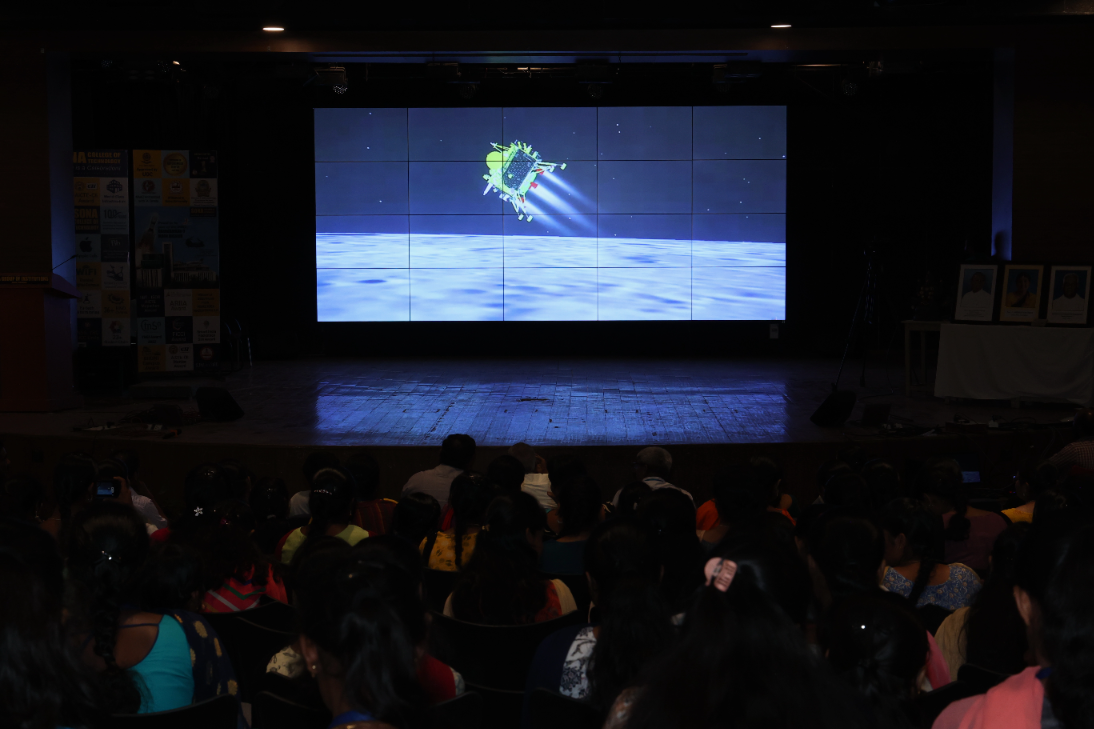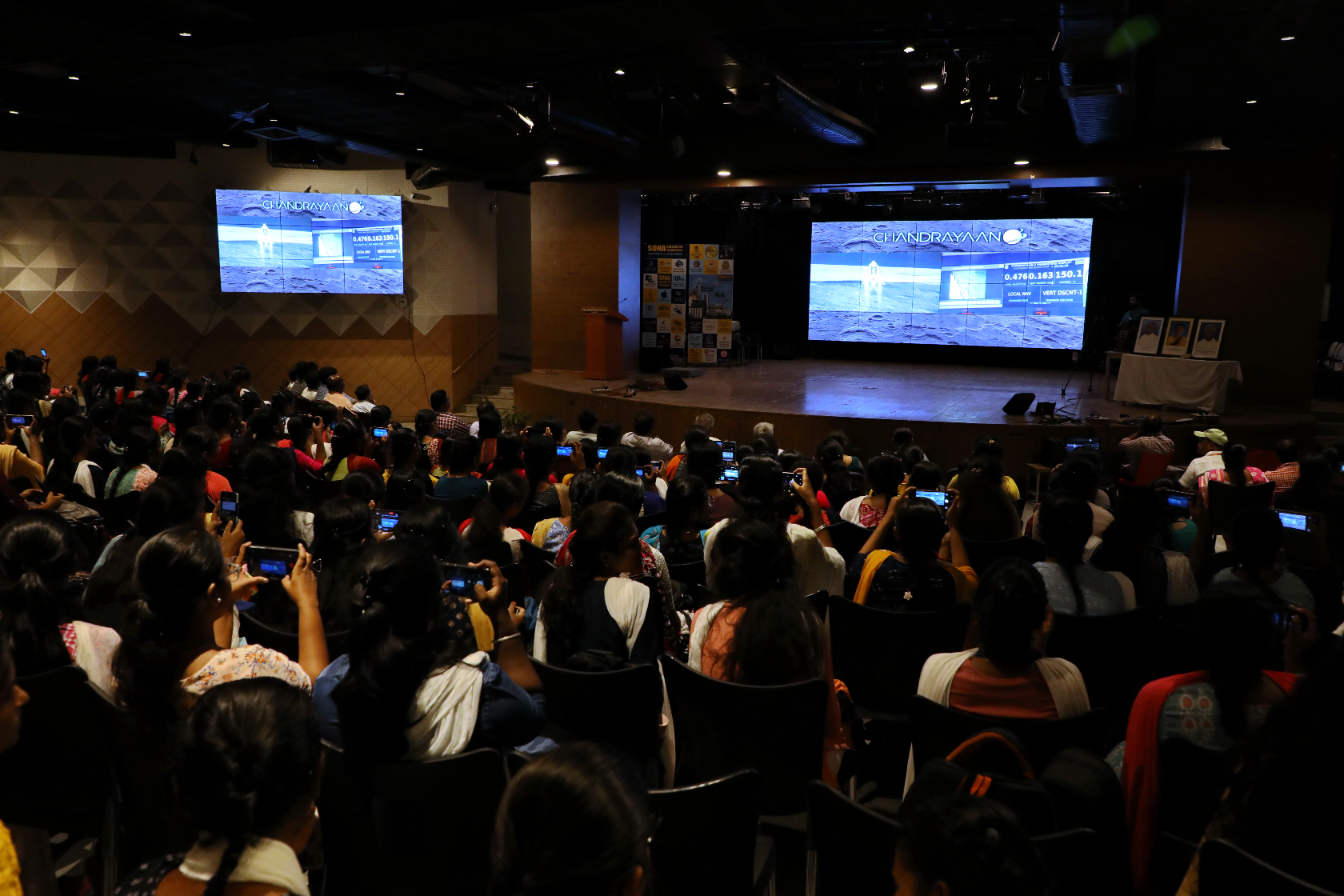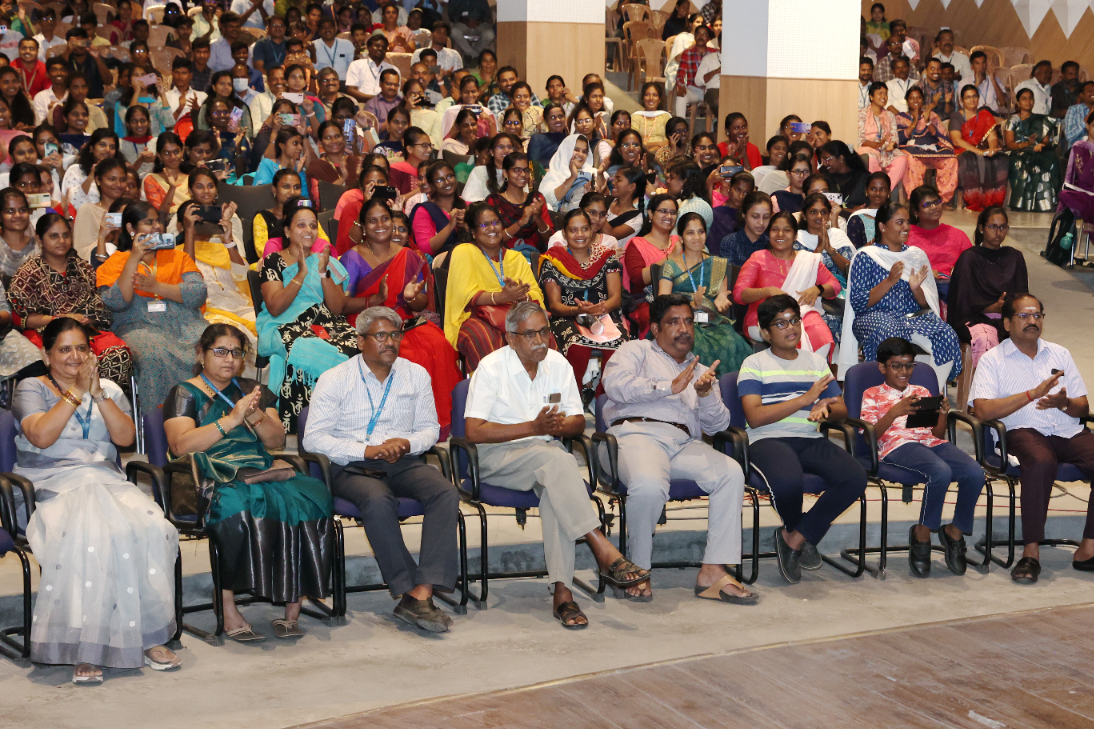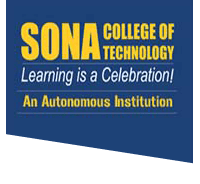India’s premier technology institutes, the IITs, have found global recognition for their bright students but many lesser-known engineering colleges in India also produce students the country can be proud of. While it’s well-known that big private manufacturers such as Godrej Aerospace and L&T have contributed to the making of Chandrayaan-3, few would know that an engineering college in Salem district of Tamil Nadu devised motors for the Moon mission.
Students and researchers of Sona College of Technology developed a stepper motor for use in the LVM-3 rocket that lifted off the Chandrayaan-3 spacecraft and placed it into the Earth’s orbit. The research team of the college developed the simplex permanent magnet stepper motor for the actuator assembly of LVM-3 that controlled the rocket engine’s liquid fuel and oxidizer mixture ratio. While the college designed the motor, it was produced by a private company, Vee Technologies.
Press Release :
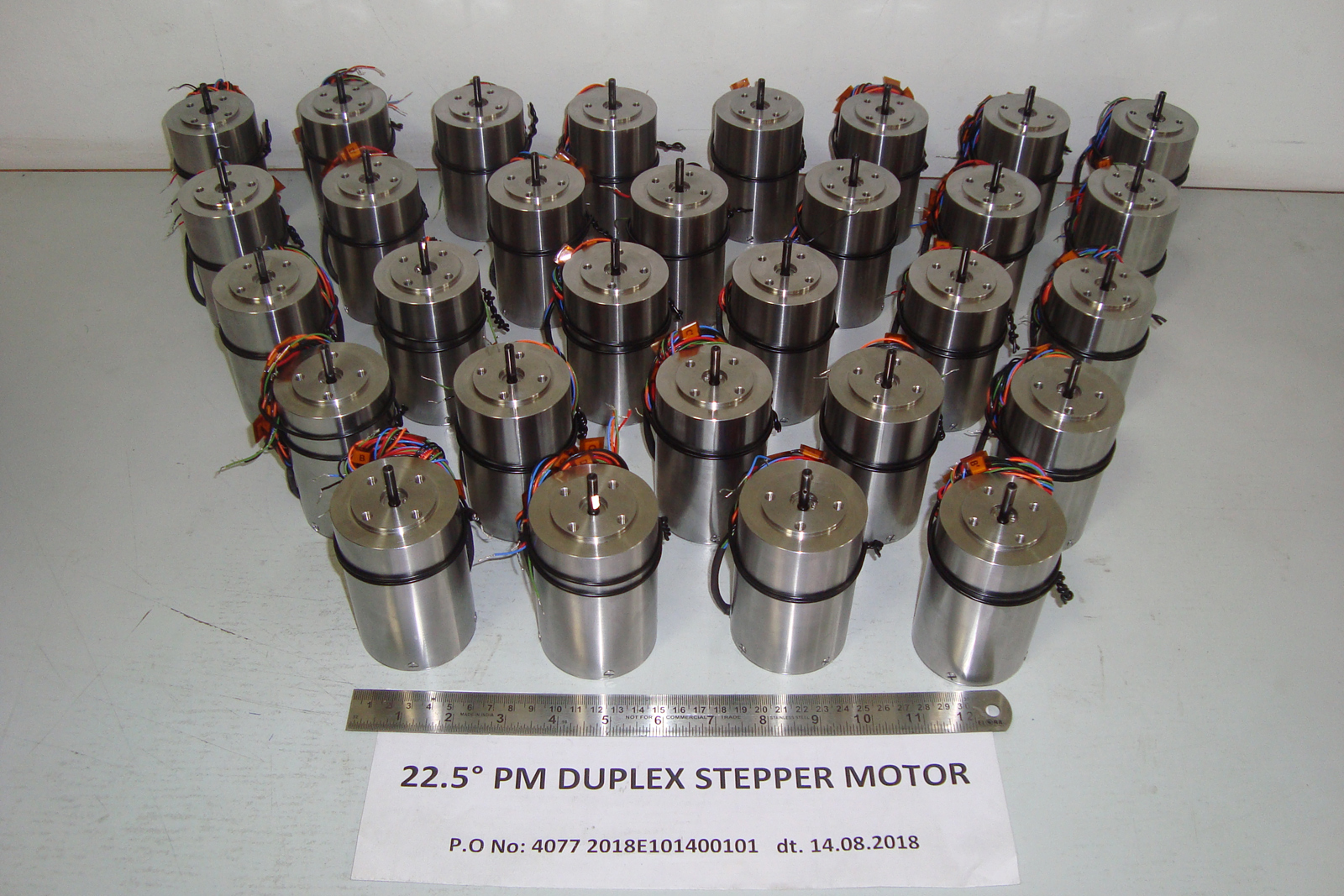
TN colleges, companies chip in to help ISRO with Moon landing
Source : Times of India
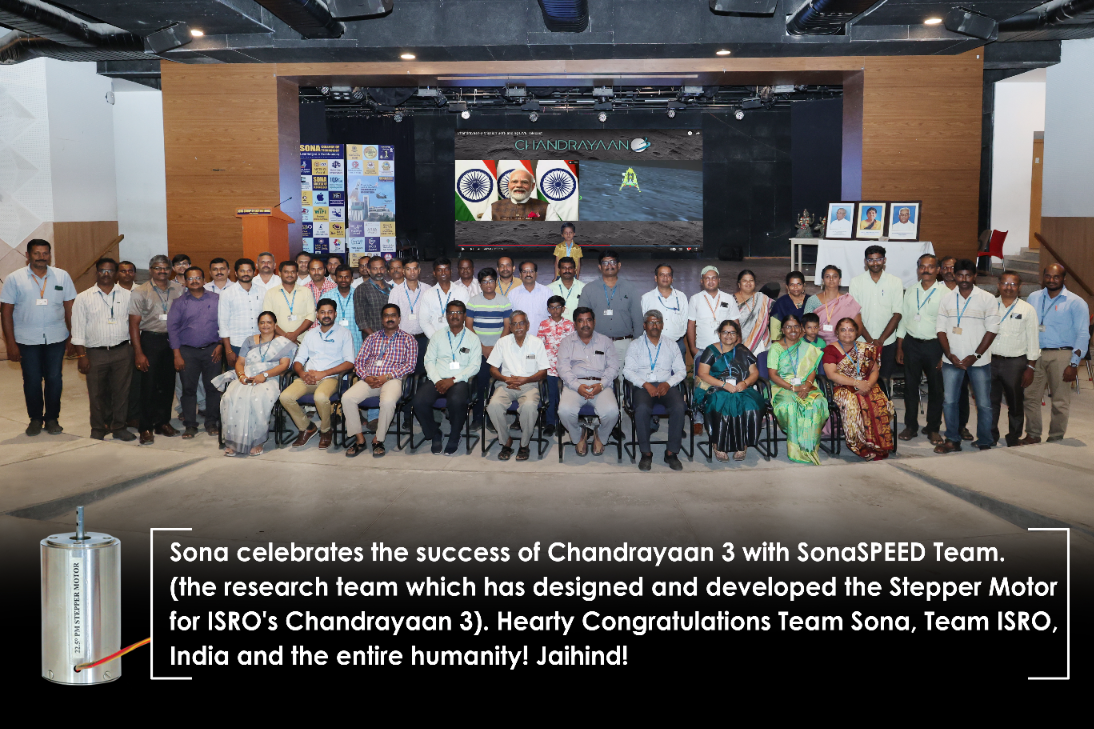
Talent beyond IITs: Small-town college supplied motors for Chandrayaan-3
Source : Economic Times
